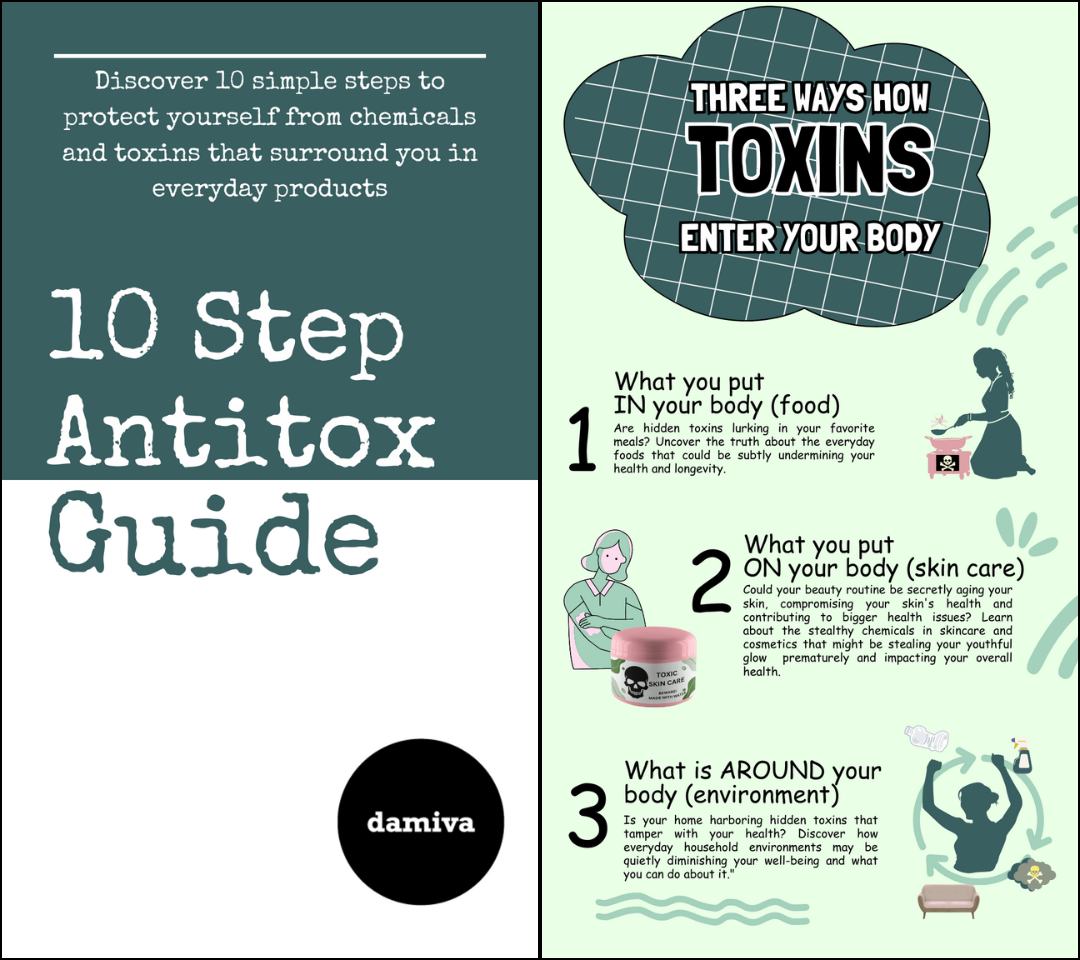Introduction
Understanding Detoxification
Detoxification is a natural process by which the body eliminates toxins through organs like the liver, kidneys, intestines, lungs, lymphatic system, and skin. Toxins are substances that can cause harm to body tissues and include pollutants, synthetic chemicals, heavy metals, and processed foods. The liver plays a central role in detoxification by chemically breaking down toxins and preparing them for elimination. The kidneys filter blood to remove waste and excess substances, which are then excreted in urine. The skin and lungs also contribute by expelling toxins through sweat and respiration, respectively.
Importance of Natural Detox Methods
Natural detox methods are crucial because they support the body’s inherent ability to cleanse itself without introducing potentially harmful substances or extreme dietary restrictions. These methods include staying hydrated, eating a diet rich in whole foods, engaging in regular physical activity, and ensuring adequate sleep. Emphasizing natural detoxification is not only safer but also promotes sustainable health practices that can be maintained long-term, unlike quick-fix detox diets that may lead to temporary results and potential health risks.
Health Concerns Addressed by Detoxification
Proper detoxification can address a variety of health concerns. By eliminating toxins from the body, we may reduce the risk of chronic diseases such as diabetes, heart disease, and certain cancers. Detoxification can also improve metabolic functions, leading to better energy levels and weight management. Additionally, it can enhance skin clarity, reduce inflammation, and bolster the immune system. Mental health benefits include improved cognitive function and stress reduction. It’s important to note that while the body is equipped to handle detoxification, certain lifestyle choices can optimize this process and contribute to overall well-being.
Do you know the 3 main ways how your body is exposed to harmful chemicals, which affect your hormones, your thyroid, health and beauty?
If not, it may be time to learn about them. It takes about 1-2 minutes.
We have a few suggestions how to avoid these silent health and immune system killers in our new guide.

Hydration and its Detoxifying Effects
The Role of Water in Detoxification
Water is the lifeblood of our body’s detoxification systems. It is essential for the kidneys to filter out waste and for the liver to metabolize toxins. Staying adequately hydrated ensures that these organs can perform their functions effectively. Water helps to dissolve soluble fiber, aiding in digestion and preventing constipation, which is crucial for eliminating toxins through the bowels. Moreover, it facilitates the transportation of nutrients to cells and the removal of waste products. In essence, water is the vehicle that carries toxins out of the body through urine, feces, and sweat.
Enhancing Detox with Infused Water Recipes
While plain water is effective for hydration, infused water can add an extra dimension to detoxification. Infusing water with fruits, vegetables, or herbs not only imparts a refreshing flavor but can also introduce additional detoxifying properties and nutrients. For example, lemon-infused water provides vitamin C, known for its antioxidant properties, while mint can aid digestion. Here are a few simple infused water recipes to enhance your detox regimen:
- Cucumber and Mint: A classic spa water that’s refreshing and helps with inflammation.
- Lemon and Ginger: Boosts immune function and aids in digestion.
- Berry and Orange: Packed with antioxidants and a sweet, tangy flavor.
To make infused water, simply add your chosen ingredients to a pitcher of water and let it sit for a few hours or overnight to allow the flavors to meld. Remember to remove the ingredients after 12 hours to prevent decomposition.
Understanding Adequate Hydration Levels
Knowing how much water to drink is key to effective detoxification. The general recommendation is to consume 125 ounces (3.7 liters) for men and 91 ounces (2.7 liters) for women daily, but individual needs can vary based on factors such as climate, exercise intensity, and overall health. A good rule of thumb is to drink enough water so that you’re rarely thirsty and your urine is light in color. Additionally, incorporating water-rich foods like fruits and vegetables into your diet can contribute to your hydration levels. It’s important to listen to your body and adjust your water intake accordingly, especially during exercise or hot weather when you may need more to compensate for fluid loss through sweat.
In conclusion, water is a fundamental element in the body’s natural detoxification process. By staying hydrated, experimenting with infused water recipes, and understanding your personal hydration needs, you can support your body’s ability to cleanse itself and maintain optimal health.
By the way, something for you, a little gift!!!
I am just in the middle of publishing my book. It’s about How women can balance their hormones. One part is about food and diet, of course.
Follow this link and enter your email.
I will send you this part of the book for free once the book is published. It has many concrete, practical tips and recipes and will help you feel better during menopause or times of Big hormonal fluctuations.
Annette, Damiva Lead for Health & Wellness

Dietary Adjustments for Natural Detox
Incorporating Detoxifying Foods
One of the most effective ways to support your body’s natural detoxification processes is through the foods you eat. Incorporating detoxifying foods into your diet can enhance your liver’s ability to detoxify harmful substances and support other detox organs like the kidneys and colon. Foods rich in antioxidants, such as berries, nuts, and green leafy vegetables, help combat oxidative stress and free radical damage. Additionally, foods high in fiber, such as whole grains, legumes, and seeds, promote healthy digestion and facilitate the elimination of toxins through regular bowel movements.
Eliminating Toxins Through Diet
Reducing the intake of foods and substances that contribute to the body’s toxic load is crucial for natural detoxification. Minimizing or eliminating processed foods, sugars, and unhealthy fats can decrease the burden on your detox organs. Furthermore, reducing alcohol consumption is vital, as excessive alcohol intake can impair liver function and hinder the body’s detoxification efforts. By focusing on whole, unprocessed foods, you can significantly reduce the intake of potential toxins and support your body’s natural detox pathways.
Balancing Hormones with Nutrient-Rich Foods
Nutrient-rich foods play a pivotal role in balancing hormones, which are integral to the detoxification process. Foods that are high in essential nutrients, such as omega-3 fatty acids, vitamins, and minerals, can help maintain hormonal balance. For example, fatty fish, flaxseeds, and walnuts are excellent sources of omega-3s, which support anti-inflammatory processes in the body. Additionally, cruciferous vegetables like broccoli and Brussels sprouts contain compounds that help in the regulation of estrogen metabolism, further aiding detoxification.
Organic Eating and its Benefits
Choosing organic foods can also benefit natural detoxification by reducing exposure to pesticides and chemicals commonly found in conventionally grown produce. Organic eating supports a lower toxin intake, thus lessening the load on your body’s detoxification systems. While organic foods can sometimes be more expensive, even incorporating them selectively—especially for fruits and vegetables known to have higher pesticide residues—can contribute to a healthier, less toxic diet.
Conclusion
By making dietary adjustments such as incorporating detoxifying foods, eliminating toxins through diet, balancing hormones with nutrient-rich foods, and opting for organic options when possible, you can support your body’s natural detoxification processes. These changes can lead to improved health, vitality, and well-being, allowing your body to function optimally and rid itself of unwanted substances more efficiently.
Exercise and Physical Activity
Sweating Out Toxins
One of the body’s natural methods of detoxification is through sweating. Engaging in physical activity that increases your body temperature results in sweat, which helps to release toxins through the skin. Sweating can eliminate substances like heavy metals and endocrine-disrupting compounds, making it a critical component of the body’s overall detoxification process. While the kidneys and liver play a more significant role in filtering toxins, sweating provides a supplementary means of purifying the body.
Types of Exercise for Detoxification
Not all forms of exercise are created equal when it comes to detoxification. Aerobic exercises, such as brisk walking, running, cycling, and swimming, are particularly effective as they increase the heart rate and circulation, promoting the elimination of toxins through enhanced metabolic processes. Strength training also plays a role by improving muscle function and supporting the overall metabolism. High-Intensity Interval Training (HIIT) can be especially beneficial due to its ability to boost metabolism and aid in the efficient removal of waste products from the body.
- Brisk Walking or Jogging: These accessible forms of exercise improve cardiovascular health and promote sweating.
- Cycling: Offers a low-impact way to raise your heart rate and encourage detoxification.
- Swimming: Engages multiple muscle groups and supports the body’s natural detox pathways.
- HIIT: Short bursts of intense exercise followed by rest periods can accelerate the detox process.
Yoga and its Role in Detoxification
Yoga is a unique form of exercise that combines physical postures, breathing exercises, and meditation to support the body’s detoxification efforts. The practice of yoga can stimulate the lymphatic system, aiding in the removal of toxins from the body. Certain yoga poses are believed to enhance liver function and facilitate the elimination of accumulated toxins. Additionally, the focus on deep breathing helps to oxygenate the blood and further support the detox process.
- Twisting Poses: Thought to “wring out” the internal organs, aiding in the elimination of toxins.
- Inversions: Such as headstands and shoulder stands, which are said to promote lymphatic drainage.
- Deep Breathing Techniques: Increase oxygen flow and support the body’s natural detoxification systems.
Regular engagement in yoga can also reduce stress levels, which is beneficial as chronic stress can impede the body’s ability to detoxify effectively.
In conclusion, incorporating regular exercise and physical activity into your routine is an excellent way to support your body’s natural detoxification processes. Whether it’s through sweating, improving circulation, or enhancing the function of the lymphatic system, movement is a powerful tool for maintaining a healthier, detoxified body.

Bette 100% All-Natural Relaxing Lavender Body Lotion.
Chemical-Free
Your relaxing night time body moisturizer to leave the day’s stress behind. Decompress and wish your body good night with the calming scent of lavender.
Mindfulness and Stress Reduction
The Impact of Stress on Detoxification
Stress is an often underestimated factor that can hinder the body’s natural detoxification processes. When we are stressed, our body’s sympathetic nervous system is activated, leading to the release of stress hormones like cortisol. These hormones can disrupt the balance and function of the detoxification organs, such as the liver and kidneys, impairing their ability to process and eliminate toxins effectively. Chronic stress can also lead to poor digestive health, which is crucial for eliminating waste products from the body. Therefore, managing stress is an essential component of supporting the body’s detoxification pathways.
Mindfulness Techniques for Detox
Mindfulness techniques offer a powerful tool to reduce stress and enhance the body’s detoxification processes. By bringing attention to the present moment and observing thoughts and sensations without judgment, mindfulness can help to calm the mind and reduce the physiological effects of stress. Techniques such as deep breathing exercises, guided meditations, and mindful movement practices like yoga can help to activate the parasympathetic nervous system, often referred to as the “rest and digest” system, which supports the body’s detox functions. Incorporating these practices into daily routines can help to maintain a relaxed state of mind and promote a more effective detoxification process.
The Connection Between Mental Health and Physical Detox
The link between mental health and physical detoxification is profound. A healthy mental state can positively influence the body’s ability to detoxify. When we are mentally well, our body can focus more on restorative processes, including detoxification. Conversely, mental health issues such as anxiety and depression can lead to physical symptoms and may impede the body’s natural detox mechanisms. By using mindfulness to improve mental health, we can support our body’s detoxification systems. This holistic approach ensures that detoxification is not just about the physical release of toxins but also about nurturing a state of mental well-being, which in turn can lead to a healthier, more balanced body.
Conclusion
Embracing mindfulness and stress reduction techniques is a vital step towards enhancing the body’s natural detoxification processes. By understanding the impact of stress on detoxification, employing mindfulness techniques, and acknowledging the connection between mental health and physical detox, we can foster a healthier environment for our bodies to cleanse and rejuvenate. As we integrate these practices into our lives, we pave the way for a more balanced and detoxified state of being, contributing to overall health and wellness.
Do you know the three main ways that your body gets in touch with harmful chemicals with everyday products? Knowledge is Power!
The Ultimate Detox Guide will tell you how to lower your exposure to harmful chemicals!

Natural Detoxification Aids
Herbs and Supplements for Detox
While the body is naturally equipped to detoxify itself, certain herbs and supplements can support this process. Milk thistle, for instance, is renowned for its liver-protective qualities and can aid in the regeneration of liver cells. Dandelion root is another herb that acts as a diuretic, promoting the elimination of toxins through the kidneys and urine. Turmeric, with its active compound curcumin, offers anti-inflammatory benefits and can enhance liver function.
Supplements like N-acetyl cysteine (NAC) can boost levels of glutathione, a potent antioxidant crucial for detoxification pathways in the liver. Additionally, calcium-D-glucarate can help in the detoxification of excess hormones and toxins by supporting the body’s glucuronidation pathway. It’s important to consult with a healthcare provider before starting any supplement regimen, as they can provide personalized advice based on individual health needs.
Dry Brushing and Other Skin Detox Methods
The skin, being the largest organ of the body, plays a significant role in detoxification through sweat. Dry brushing is a technique that involves using a dry, natural-bristle brush to gently brush the skin. This not only exfoliates the skin, removing dead skin cells, but also stimulates the lymphatic system, which helps in the elimination of toxins. Dry brushing should be done gently, in a circular motion towards the heart, ideally before showering.
Other skin detox methods include sauna therapy and epsom salt baths. Saunas induce sweating and can help release toxins stored in fat cells. Epsom salt baths, rich in magnesium, can promote relaxation and may assist in drawing out impurities through the skin. As with any detox method, it’s essential to stay hydrated to replenish fluids lost through sweating.
The Importance of Sleep in Detoxification
Quality sleep is paramount for overall health and plays a critical role in the body’s natural detoxification processes. During sleep, the brain’s glymphatic system becomes active, working to clear out waste products such as beta-amyloid, which is associated with Alzheimer’s disease. Adults should aim for 7 to 9 hours of sleep per night to support these functions.
To improve sleep quality, adopting good sleep hygiene practices is beneficial. This includes maintaining a regular sleep schedule, creating a restful environment, and avoiding stimulants like caffeine and electronics before bedtime. Adequate sleep not only supports detoxification but also helps regulate hormones, improve mood, and enhance cognitive function.
Conclusion
Incorporating natural detox aids such as herbs, supplements, skin detox methods, and ensuring sufficient sleep can support the body’s inherent detoxification systems. These practices, combined with a healthy lifestyle, can contribute to a more efficient removal of toxins and a healthier you. Remember, it’s always best to discuss any new detox methods or supplements with a healthcare professional to ensure they are appropriate for your individual health needs.
Do you know the 3 main ways how your body is exposed to harmful chemicals, which affect your hormones, your thyroid, health and beauty?
If not, it may be time to learn about them. It takes about 1-2 minutes.
We have a few suggestions how to avoid these silent health and immune system killers in our new guide.

Conclusion
Implementing a Holistic Detox Approach
As we’ve explored throughout this article, detoxification is not about quick fixes or harsh regimens. It’s about nurturing your body and supporting its natural processes. A holistic detox approach means looking at your health from a comprehensive perspective, where hydration, nutrition, physical activity, stress management, and sleep all play a pivotal role. To implement this approach, start by making small, manageable changes to your daily routine. This could mean increasing your water intake, incorporating more fiber-rich foods into your diet, or establishing a consistent sleep schedule. Remember, the goal is to create a sustainable lifestyle that supports detoxification and overall well-being.
Maintaining a Detoxified Lifestyle
Maintaining a detoxified lifestyle is an ongoing process that requires mindfulness and commitment. It’s about making conscious choices that align with your health goals. This includes choosing organic foods when possible, engaging in regular exercise, practicing stress-reducing techniques like mindfulness or yoga, and ensuring you’re getting enough restorative sleep. It’s also important to be aware of your environment and limit exposure to toxins whenever you can. By adopting these practices, you can help your body maintain its natural detoxification rhythm and promote long-term health.
Final Thoughts on Natural Detoxification
In conclusion, natural detoxification is a vital aspect of maintaining health and vitality. By understanding and supporting the body’s inherent ability to cleanse itself, we can enhance our overall well-being. Embrace the power of hydration, the benefits of a fiber-rich diet, the efficacy of regular exercise, the calming effects of mindfulness, and the restorative nature of sleep. Each of these natural detox methods contributes to a holistic approach that can lead to a healthier, more energized you. As you move forward, take these insights and integrate them into your life, knowing that each step you take is a positive move toward a cleaner, clearer, and more vibrant existence.









